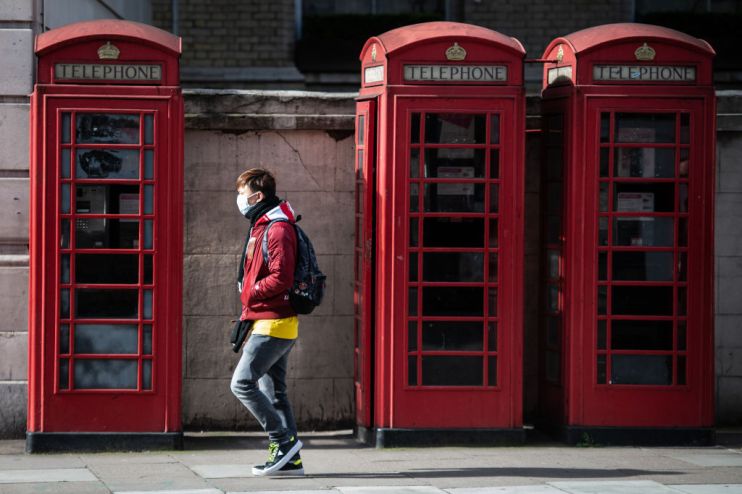London coronavirus cases plummet to 1 in 100 as lockdown makes its mark

The percentage of people testing positive for coronavirus in London has plummeted as current lockdown measures continue to push down Covid transmission.
Around 1 in 100 Londoners had Covid in the week to 12 February, according to the latest figures from the Office for National Statistics (ONS) — down from 1 in 63 the week before.
The dramatic drop means London is no longer the most-infected region in the country, after the North West of England tipped past the capital with an estimated 1 in 91 people infected last week.
However, infection rates continue to decline across the country, with all regions marking a significant drop in case rates over the past week, according to the latest ONS infection survey.
Around 1 in 115 people are thought to have been infected across England as a whole in the week to 12 February — equivalent to around 481,300 cases.
It comes as Boris Johnson prepares to set out his “roadmap” on Monday for exiting lockdown. The Prime Minister is expected to confirm plans for schools to reopen on 8 March, though he will likely hold off on providing firm dates for lifting other restrictions.
Ministers are understood to be buoyed by the rapid progress of the nation’s largest ever vaccination programme, which has so far seen almost 17m people receive their first dose of a Covid vaccine.
A senior scientific adviser today suggested the UK could be back to normal by May, after fresh data on the effectiveness of vaccines showed a steep drop in death rates among the elderly.
Professor Neil Ferguson, from Imperial College London, told the BBC that “ society will be a lot more normal” by May, though he warned that lifting restrictions would depend on things panning out as hoped.
The government has introduced sweeping measures to “snuff out” threats from emerging Covid variants.
Passengers arrived at airport hotels on Monday as part of the new 10-day hotel quarantine scheme, after health secretary Matt Hancock said the government would leave “no stone unturned” in attempts to stave off new Covid variants.
Those who refuse to comply with the new restrictions face fines of up to £10,000 and 10-year jail sentences.
Hancock said he made “no apologies” for the tough enforcement measures, telling MPs they were crucial “because we’re dealing with one of the strongest threats to our public health we’ve faced as a nation”.
Jonathan Van-Tam, England’s chief medical officer, has reiterated that the UK’s only “immediate threat” is the new Kent strain of coronavirus.
The Kent mutation, which has become the country’s dominant variant, is thought to be responsive to available vaccines.
However, the government this week continued to roll out “surge testing” in areas with confirmed cases of new Covid variants.
A coronavirus testing blitz is being carried out in Surrey, Southampton and Norfolk this following confirmed cases of the South Africa strain.
Some London areas including Lambeth, Ealing and Croydon are still undergoing surge testing as ministers scramble to fend off cases of “variants of concern” in the capital.